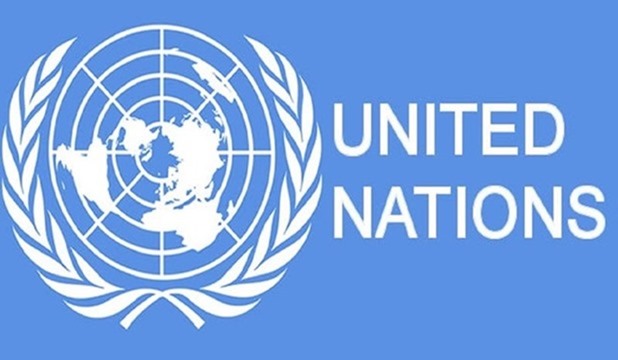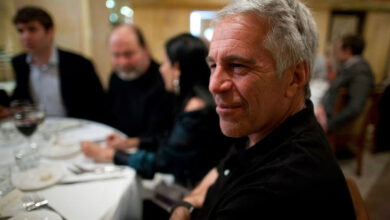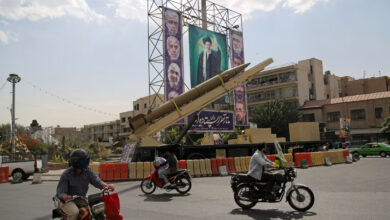
This year, the UN celebrates its 80th anniversary, amidst a backdrop of escalating global geopolitical tensions and conflicts. This includes a massive military conflict between Russia and the West in Ukraine, deteriorating relations between the US and Russia, and a freeze on all arms control negotiations.
Furthermore, relations between the US, the West in general, and China have moved beyond competition over trade and technology, shifting strongly towards strategic confrontation.
War has spread across the Middle East, particularly in Libya, Sudan, Yemen, and Syria, compounded by Israel’s inhumane genocide in Gaza. Israel also attacked Iran, igniting a dangerous new strategic conflict, and the United States exacerbated the situation by launching a highly sophisticated military raid on at least three Iranian nuclear sites.
The United Nations, specifically established to prevent a third world war and the recurrence of massive human losses, was supposed to be the arena for resolving these issues.
Blatant use of force
Disturbingly, there has been a blatant and repeated use of force across the globe, directly contradicting the principles and provisions of the United Nations Charter. This aggression is often carried out by permanent members of the UN Security Council or their close allies, such as Israel, who appear to be immune from accountability.
A prime example is America’s vetoing of a draft resolution calling for a permanent and unconditional ceasefire in Gaza, the release of hostages, and the lifting of humanitarian restrictions.
The credibility of the UN’s political committees, especially the Security Council, has been severely damaged. It seemingly responds only when it serves the interests of the world’s two most powerful nations.
As the UN General Assembly convenes in the fall of 2025, it is anticipated that US President Donald Trump will deliver a fiery speech against the organization, accusing it of excessive spending and corruption, and demanding fundamental reforms.
Despite its current struggles, I remain a strong supporter of the UN. Although clearly strained, it represents the best available platform for multilateralism in our current world.
The UN currently boasts 193 members, with Palestine striving to become the 194th, signaling its ongoing relevance.
It’s clear that the vast majority of the international community currently prefers to reform relations between states within the UN platform rather than outside of it. However, many are simultaneously dissatisfied with the organization’s current performance, strongly advocating for serious steps towards reform to enhance, not weaken, its effectiveness.
Three key demands for reform
Three core demands lie at the heart of calls for reform, both within the UN itself and its specialized agencies, as well as the Bretton Woods institutions:
- Expanding Membership: Increasing the number of members in various councils, such as the Security Council, to roughly 24 to 25 members, with the addition of at least two permanent seats for Africa.
- Curbing Veto Abuse: Establishing arrangements to limit the misuse or overuse of the veto power, and implementing appropriate measures to prevent potential overreach by the General Assembly.
- Fairer Decision-Making: Organizing decision-making processes more equitably by reducing the weighted votes of more developed nations, particularly within multilateral financial institutions.
While attempts to curb the absolute power of the UN’s permanent members might seem unrealistic, especially given the US stance, this overlooks the fact that the United States was actually a pioneer in proposing reforms in the past. In 1950, it put forward General Assembly Resolution 377, titled “Uniting for Peace,” in an effort to bypass the Soviet veto, which was then obstructing the Security Council’s efforts to defend South Korea against North Korea.
The core of that resolution stipulates that the General Assembly has the right to convene an emergency special session if the Security Council fails to exercise its responsibilities.
Indeed, over the past 80 years, the Security Council has repeatedly failed to make appropriate and fair decisions when its permanent members or their close allies are the subject of a resolution. As a result, both permanent and non-permanent members have suffered from the resulting deadlock.
It is in everyone’s interest to push forward the three reform demands mentioned above to revitalize these bodies and enhance their performance.
The “UN80 Initiative,” launched in March 2025, and the “Pact for the Future and UN 2.0” aim to modernize the organization’s work, priorities, and operations by directly responding to the financial crisis.
This includes relocating some bodies from New York to less costly locations, such as Nairobi.
The non-permanent members of the UN (the “middle powers” from around the world) must form a coalition willing to adopt political, economic, and administrative reforms for intergovernmental organizations without bias or favoritism.
They should firmly assert that working to reform and rectify multilateralism is essential to ensure its credibility.
Therefore, the opportunity of the UN’s 80th anniversary should be seized to take constructive steps toward achieving genuine reforms.
Otherwise, future generations might view this anniversary as an ominous turning point where the organization descended into the abyss of lost credibility and political irrelevance.
About the author:
Nabil Fahmy is a distinguished Egyptian diplomat who previously served as the nation’s Minister of Foreign Affairs. His extensive career includes a significant tenure as Egypt’s Ambassador to the United States. In August 2009, he was appointed Dean of the School of Public Affairs at the American University in Cairo.




